
Alzheimer’s disease (AD) is the most common form of dementia among older people. Dementia is a brain disorder that seriously affects a person’s ability to carry out daily activities. AD begins slowly. It first involves the parts of the brain that control thought, memory and language. People with AD may have trouble remembering things that happened recently or names of people they know. In AD, over time, symptoms get worse. Eventually, they need total care. AD usually begins after age 60. The risk goes up as you get older.[1]
So, What Is Alzheimer’s disease?
Alzheimer’s disease is an irreversible, progressive brain disorder that slowly destroys memory and thinking skills and, eventually, the ability to carry out the simplest tasks.
What Causes Alzheimer’s disease?[2]
The exact causes of Alzheimer’s disease aren’t fully understood, but Alzheimer’s disease is thought to be caused by the abnormal build-up of proteins in and around brain cells.
Researchers are focused on the role of two proteins:
Plaques: Beta-amyloid is a leftover fragment of a larger protein. When these fragments cluster together, they appear to have a toxic effect on neurons and to disrupt cell-to-cell communication. These clusters form larger deposits called amyloid plaques, which also include other cellular debris.
Tangles: Tau proteins play a part in a neuron’s internal support and transport system to carry nutrients and other essential materials. In Alzheimer’s disease, tau proteins change shape and organize themselves into structures called neurofibrillary tangles. The tangles disrupt the transport system and are toxic to cells.
Although it’s not known exactly what causes this process to begin, scientists now know that it begins many years before symptoms appear.
As brain cells become affected, Neurons are damaged, lose connections to each other and eventually die. And there’s also a decrease in chemical messengers (called neurotransmitters) involved in sending messages, or signals, between brain cells. Levels of one neurotransmitter, acetylcholine, are particularly low in the brains of people with Alzheimer’s disease.
Over time, different areas of the brain shrink. The first areas usually affected are responsible for memories.
How Is Alzheimer’s Disease Treated? [3]
No treatment can stop the disease. However, some drugs may help keep symptoms from getting worse for a limited time.
- Treatment for Mild to Moderate Alzheimer’s Medications called cholinesterase inhibitors[4] are prescribed for mild to moderate Alzheimer’s disease.
These drugs may help reduce some symptoms and help control some behavioral symptoms like (galantamine).
Scientists do not yet fully understand how cholinesterase inhibitors work to treat Alzheimer’s disease, but research indicates that they prevent the breakdown of acetylcholine, a brain chemical believed to be important for memory and thinking. As Alzheimer’s progresses, the brain produces less and less acetylcholine; therefore, cholinesterase inhibitors may eventually lose their effect.
Galantamine mechanism of action:[5]
Prevents the breakdown of acetylcholine and stimulates nicotinic receptors to release more acetylcholine in the brain.
- Treatment for Moderate to Severe Alzheimer’s (NMDA) antagonist[6]
A medication known as memantine, an N-methyl D-aspartate (NMDA) antagonist, is prescribed to treat moderate-to-severe Alzheimer’s disease. This drug’s main effect is to decrease symptoms, which could allow some people to maintain certain daily functions a little longer than they would without the medication. Memantine is believed to work by regulating glutamate, an important brain chemical. When produced in excessive amounts, glutamate may lead to brain cell death.
Memantine mechanism of action:[7]
Blocks the toxic effects associated with excess glutamate and regulates glutamate.
- Because NMDA antagonists work differently from cholinesterase inhibitors, the two types of drugs can be prescribed in combination.
[1] https://medlineplus.gov/alzheimersdisease.html
[2] https://www.mayoclinic.org/diseases-conditions/alzheimers-disease/symptoms-causes/syc-20350447
[3] https://www.nia.nih.gov/health/how-alzheimers-disease-treated
[4] Lippincott
[5] DrugBank
[6] Lippincott
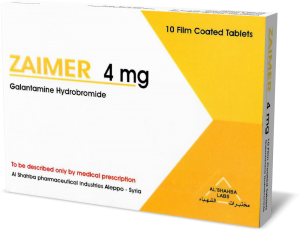
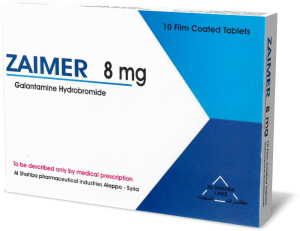
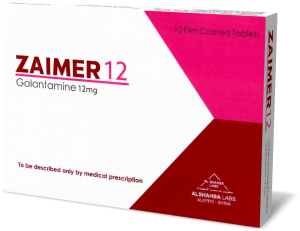
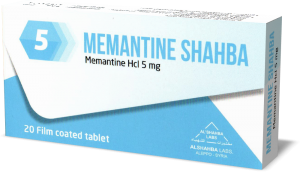
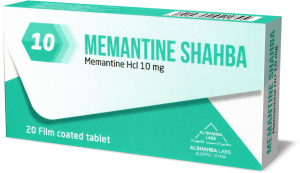
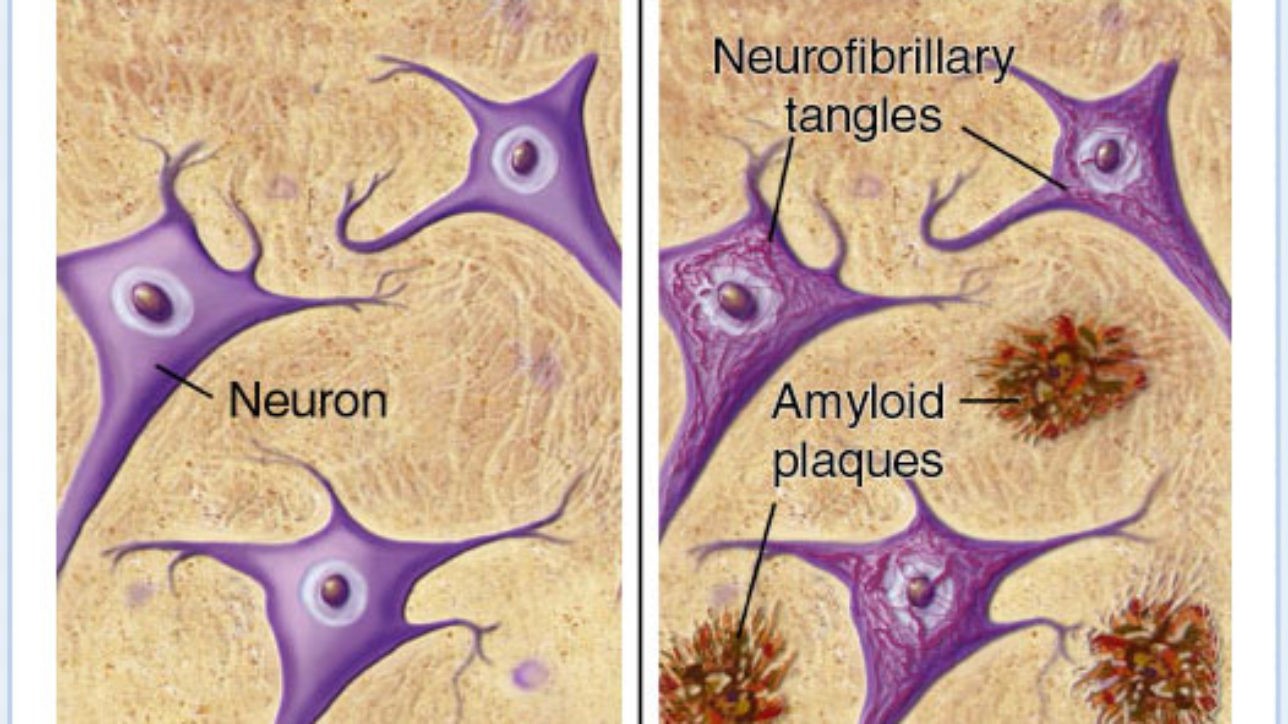
[7] DrugBank
